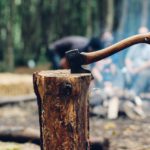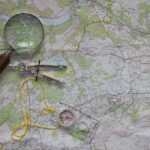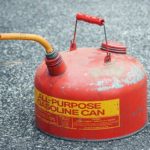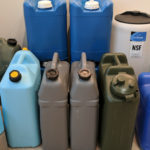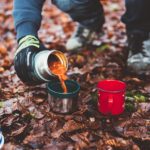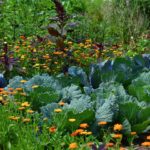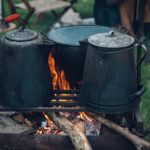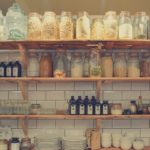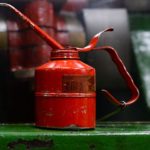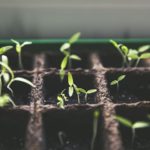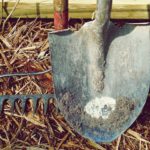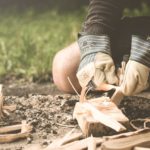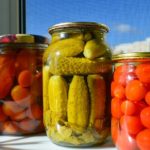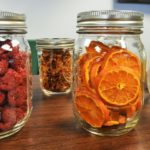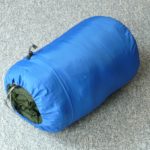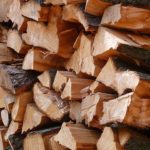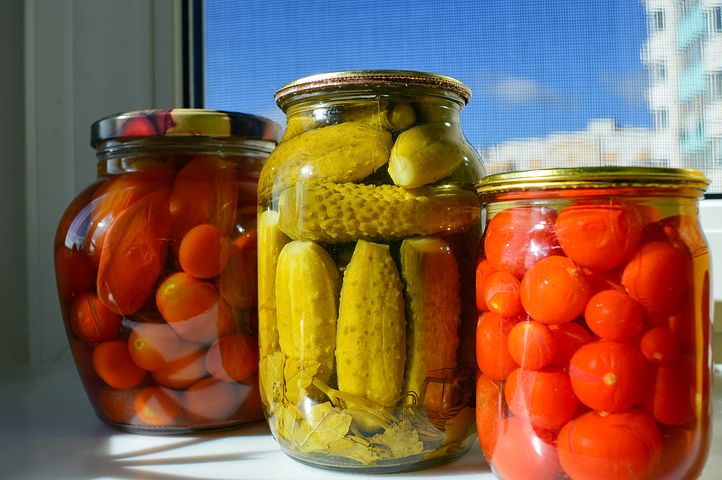
Growing up in remote and rural places, Preparedness was instilled in both of us as part of our everyday living. I can remember many eye-rolling moments as a child; waiting impatiently while Mom packed up the car with extra winter clothes, spare boots, wool socks, hats, mittens, blankets, candles, hand warmers, snacks, water, a shovel, Jerry-can, bags of salt – just to make a 15 minute trip down the road to visit Grandma in the winter time.By the time she was satisfied we had packed all the necessities, the only thing that wasn’t in the car was leg room!
During summer storms the drill was always the same, “Run the bathtub full of water! But be CAREFUL! Those taps are like lightning rods! Find the flashlight! You kids better get down in the basement. Right now!” As excitable as Mom could get sometimes, certainly no one was rolling their eyes when a tornado actually did touch down; ripping through several farms nearby, taking out the power grid and leaving us the only house on the block able to flush our toilets with our stockpiled bathtub water!
It was important to be self-sufficient, even if it was just for the sake of economics. We kept a garden, raised our own livestock on my Dad’s family farm, baked our own bread and goodies, and learned to sew. Spring was planting and calving season, Summer holidays were spent tending our garden, Fall was time for preserving and “putting up” the harvest, and Winter was by far the hardest; making cold and arduous trips to our woodlot, wading through waist-deep snow collecting firewood for our wood burning furnace. It felt like a never-ending cycle of exhausting chores and I bitterly envied our PopTart-eating, CableTV-watching neighbour kids with none of these responsibilities. It wasn’t until I was grown that I realized what a priceless education I had received!
When I met my husband-to-be, I knew we were a perfect match when we shared the same “the-only-half-of-a-gas-tank-is-the-top-half” philosophy. It turns out what I believed to be everyday, common sense knowledge actually wasn’t very common at all. Finding someone who shared my values and being in a partnership with a person that is conscious of my safety and security above all else, has brought me peace of mind and comfort.
Now, becoming a “Prepper” doesn’t mean you have to sell your condo and take up the homesteading life. Nor does it mean you have to consider and prepare yourself for every possible scenario or outcome because realistically we can never fully prepare ourselves for the surprises and challenges Life throws our way. There are, however, many simple little things you can do Right Now to make your life a little more comfortable in the event you encounter some turbulence on your journey.
Preparedness Ideas Anyone Can Do Right Now:
- Fill a few 4L jugs with drinking water. Refresh occasionally.
- Keep candles, matches and a flashlight with spare batteries in an easy-to-access place in your home.
- Inspect your fire extinguisher and batteries in your smoke and carbon monoxide detectors to make sure everything is in good working order.
- Print a list of important phone numbers as a backup. Next of kin, family doctor, veterinarian, local poison control and other emergency contacts.
- Cut a spare set of keys for your home and car to leave with a neighbour or friend.
- Purchase or make your own First Aid Kit with various types of bandages, gauze, alcohol or iodine, suturing kit, scissors, tweezers, disposable gloves, safety pins, adhesive tape, thermometer, aspirin, ibuprofen, antihistamines, eye wash, antiseptic cream, emergency blanket and a Red Cross first aid manual.
- Charge up your phone during storm warnings. Better yet, invest in a solar/crank operated power pack as an alternative power source.
- Stock your pantry with 3 days work of food per person. Opt for ready to eat foods such as crackers, granola, dehydrated meals, canned fruits, veg and meats since food like rice and beans may present difficultly cooking in a gas or power outage.
- Keep your vehicle well maintained, with a full tank, spare jugs of fluids on hand, and a working spare tire and jack. Also consider a fire extinguisher, First-Aid Kit, jumper cables, tow rope, seatbelt cutter /break-glass tool, and flares or traffic pylons as these are possibly life-saving additions for your vehicle. Pack snacks and water on road trips. Keep a hard copy roadmap in your vehicle in the event you lose cell phone coverage or your battery goes dead. In cold climates, a shovel, emergency blanket and survival candles are also good ideas.
- Keep an extra cash stash.
- Start an emergency savings account for unforeseen flat tires, vet bills, home maintenance issues and other “everyday disasters”.
- Create a long term financial plan for more serious disasters such as illness or disability.
- Make a copy of important documents and IDs and keep in a safe place. The freezer can act as a make-shift fireproof safe if you are without one.
- Create an emergency escape plan and practice with your family. Do you have an escape route in your home in case of fire? What about evacuating from your city? Is there a designated meeting place for family if communications are down? Have alternate, ordered plans #1, #2, and #3 in case routes are impassible.
- Organize a portable filing system with important documents such as tax returns, healthcare info and travel documents to be ready to go too.
While you are working at becoming a more savvy Prepper, it’s important to keep perspective. Give yourself Prepardeness Goals and Check Lists so you can actually accomplish things, rather than getting overwhelmed and not bothering. Aim to make this a positive, even fun, experience instead of stressful or worrisome. After all, preparedness is meant to give you peace of mind.
What are some of your favourite Prepping Tips? Have you ever found yourself in a situation where you were ill-prepared? What did you learn?

